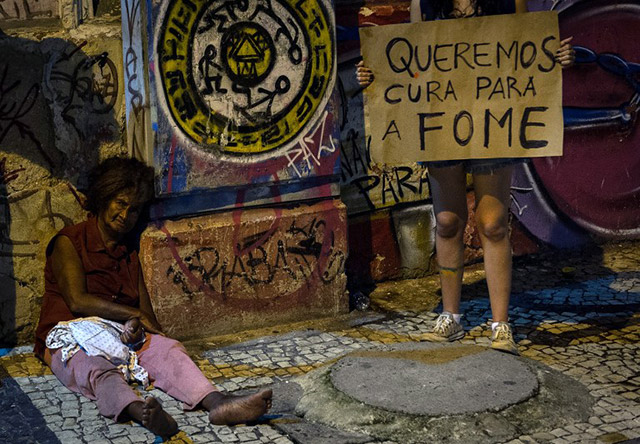SUMMARY
This is AI generated summarization, which may have errors. For context, always refer to the full article.

MANILA, Philippines – Topping the list of the Millennium Development Goals (MDG) is the eradication of extreme poverty and hunger.
In spite of the myriad efforts of different movers and shakers from around the globe, life without hunger remains a distant dream for many families.
Alongside issues of hunger and poverty are cases of undernourishment and food insecurity.
The 1996 World Food Summit defines food security as a state in which “all people, at all times, have physical and economic access to sufficient safe and nutritious food that meets their dietary needs and food preferences for an active and healthy life.”
Besides issues of food production, hunger also has its roots in unequal distribution. The United Nations Food and Agriculture Organization (FAO) identifies the 4 dimensions of food security as physical availability of food, economic and physical access to food, food utilization, and stability.
Unfortunately, in some developing countries, food security is not felt but only seen as a mere utopian concept.
Brazil steps up
The world’s ongoing fight against hunger has been a tough one, but it’s not a losing battle. Brazil helps in keeping the battle alive.
Brazil has been making waves with its Fome Zero (Zero Hunger), a government program which supports people’s access to the production and consumption of adequate food especially for those who are most vulnerable to hunger. It was introduced by former President Luiz Inácio Lula da Silva in 2003.
Fome Zero confronts Brazil’s problems holistically. It aims to eradicate hunger and reduce poverty, while also considering other factors such as education, work, health, agriculture, and gender equality.
The program is made possible through the joint efforts of communities and Brazilian government agencies.
Inspiration from Brazil
The program focuses on the following:
- Food access
- Family agriculture
- Income generation
- Civil society mobilization
Bolsa Familia (Family Grant) is the world’s largest conditional cash transfer program. It provides financial assistance to poor Brazilian families and aims to “break the intergenerational cycles of poverty.”
In order to receive the cash benefits, families must let their children attend school and undergo regular vaccinations and check-ups. The program also provides prenatal care for pregnant women.
It reaches around 50 million Brazilians or nearly a fourth of the population. The program is seen as a key factor in reducing Brazil’s extreme poverty.
Fome Zero also provides nutritious meals and health awareness for ethnic groups and students (via a National School Feeding Program). Children and vulnerable women are given Vitamin A and iron supplements.
Food banks are set up for the organization and distribution of food donations. Poor families are given access to clean water from rainwater cisterns.
Another innovation is the promotion of family farms and community gardens which can empower families and support food and economic sustainability.
Different forms of assistance are made available for farmers and their families. According to FAO, the income of family farmers increased by 33% in the years 2003-2009.
Lastly, Fome Zero educates its people about Brazil’s fight against hunger. Its well-informed public is Brazil’s greatest weapon against hunger. – Rappler.com
Add a comment
How does this make you feel?
There are no comments yet. Add your comment to start the conversation.